Filter by
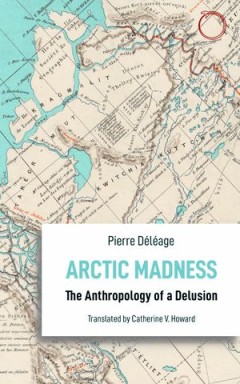
Arctic Madness: The Anthropology of a Delusion
The French missionary-linguist Émile Petitot (1838–1916) spent twenty years near the Arctic Circle in Canada, publishing numerous works on First Nations languages and practices. Over time, however, he descended into delirium and began to summon imaginary persecutions, pen improbable interpretations of his Indigenous hosts, and burst into schizoid fury. Delving into thousands of pages in lett…
- Edition
- -
- ISBN/ISSN
- 9781912808632
- Collation
- -
- Series Title
- -
- Call Number
- 301.2842 DEL a
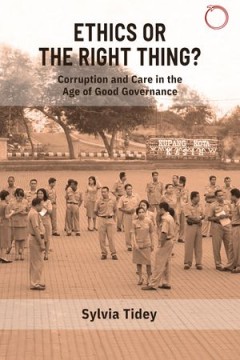
Ethics or the Right Thing?: Corruption and Care in the Age of Good Governance
A sympathetic examination of the failure of anti-corruption efforts in contemporary Indonesia. Combining ethnographic fieldwork in the city of Kupang with an acute historical sensibility, Sylvia Tidey shows how good governance initiatives paradoxically perpetuate civil service corruption while also facilitating the emergence of new forms of it. Importing critical insights from the anthropology …
- Edition
- -
- ISBN/ISSN
- 9781912808656
- Collation
- -
- Series Title
- -
- Call Number
- 321 TID e
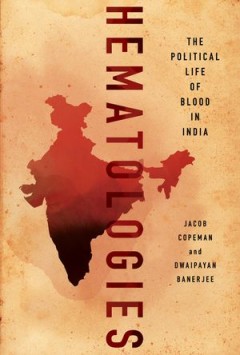
Hematologies : The Political Life of Blood in India
In this ground-breaking account of the political economy and cultural meaning of blood in contemporary India, Jacob Copeman and Dwaipayan Banerjee examine how the giving and receiving of blood has shaped social and political life. Hematologies traces how the substance congeals political ideologies, biomedical rationalities, and activist practices.Using examples from anti-colonial appeals to blo…
- Edition
- -
- ISBN/ISSN
- 1501745115, 9781501745119
- Collation
- -
- Series Title
- -
- Call Number
- -
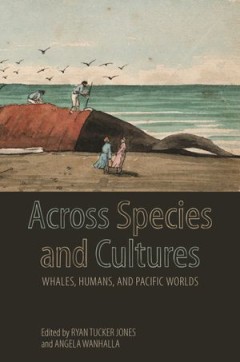
Across Species and Cultures (PDF) Whales, Humans, and Pacific Worlds
More than any other locale, the Pacific Ocean has been the meeting place between humans and whales. From Indigenous Pacific peoples who built lives and cosmologies around whales, to Euro-American whalers who descended upon the Pacific during the nineteenth century, and to the new forms of human-cetacean partnerships that have emerged from the late twentieth century, the relationship between the…
- Edition
- -
- ISBN/ISSN
- 9780824892135
- Collation
- -
- Series Title
- -
- Call Number
- -
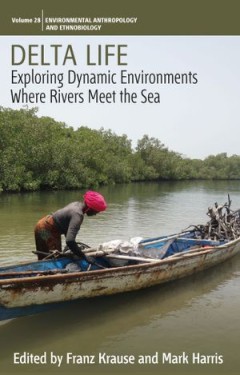
Delta Life Exploring Dynamic Environments where Rivers Meet the Sea
Proposing a series of innovative steps towards better understanding human lives at the interstices of water and land, this volume includes eight ethnographies from deltas around the world. The book presents ‘delta life’ with intimate descriptions of the predicaments, imaginations and activities of delta inhabitants. Conceptually, the collection develops ‘delta life’ as a metaphor for ap…
- Edition
- -
- ISBN/ISSN
- 9781800731240
- Collation
- -
- Series Title
- -
- Call Number
- -
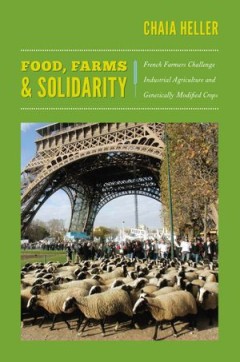
Food, Farms & Solidarity
The Confédération Paysanne, one of France's largest farmers' unions, has successfully fought against genetically modified organisms (GMOs), but unlike other allied movements, theirs has been led by producers rather than consumers. In Food, Farms, and Solidarity, Chaia Heller analyzes the group's complex strategies and campaigns, including a call for a Europe-wide ban on GM crops and hormone-t…
- Edition
- -
- ISBN/ISSN
- 9780822351184
- Collation
- -
- Series Title
- -
- Call Number
- -
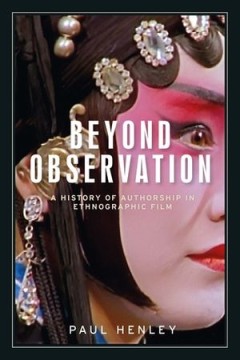
Beyond observation: A history of authorship in ethnographic film
Beyond Observation is structured by the argument that the 'ethnographicness' of a film should not be determined by the fact that it is about an exotic culture - the popular view - nor because it has apparently not been authored - a long-standing academic view - but rather because it adheres to the norms of ethnographic practice more generally. On these grounds, the book covers a large number of…
- Edition
- -
- ISBN/ISSN
- 9781526147295
- Collation
- -
- Series Title
- -
- Call Number
- 791.43 HEN b
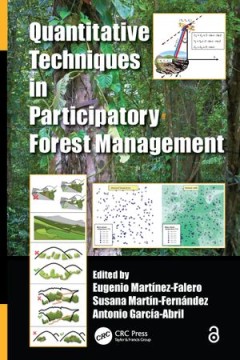
Searching for Sharing: Heritage and Multimedia in Africa
In a world where new technologies are being developed at a dizzying pace, how can we best approach oral genres that represent heritage? Taking an innovative and interdisciplinary approach, this volume explores the idea of sharing as a model to construct and disseminate the knowledge of literary heritage with the people who are represented by and in it.
- Edition
- -
- ISBN/ISSN
- 9781783743209
- Collation
- -
- Series Title
- -
- Call Number
- -

Read till it shatters: Nationalism and identity in modern Thai literature
This book introduces readers to modern Thai literature through the themes of modernity, nationalism, identity and gender. In the cultural, political and social transformations that occurred in Thailand during the first half of the twentieth century, Thai literature was one of the vehicles that moved the changes. Taking seriously ‘read till it shatters’, a Thai phrase that instructs readers …
- Edition
- -
- ISBN/ISSN
- 9781760462260
- Collation
- -
- Series Title
- -
- Call Number
- -

Delta Life
Proposing a series of innovative steps towards better understanding human lives at the interstices of water and land, this volume includes eight ethnographies from deltas around the world. The book presents ‘delta life’ with intimate descriptions of the predicaments, imaginations and activities of delta inhabitants. Conceptually, the collection develops ‘delta life’ as a metaphor for ap…
- Edition
- -
- ISBN/ISSN
- 9781800731240
- Collation
- -
- Series Title
- -
- Call Number
- -
 Computer Science, Information & General Works
Computer Science, Information & General Works  Philosophy & Psychology
Philosophy & Psychology  Religion
Religion  Social Sciences
Social Sciences  Language
Language  Pure Science
Pure Science  Applied Sciences
Applied Sciences  Art & Recreation
Art & Recreation  Literature
Literature  History & Geography
History & Geography